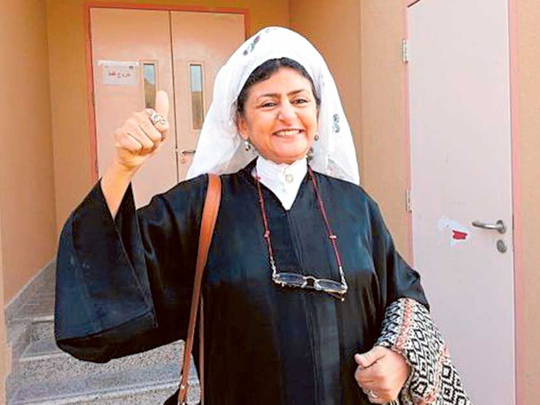
Manama: A lecture in the Qatari capital Doha by a Qatar University (QU) faculty member has been postponed after students and community members pressed in an online campaign for its cancellation.
Hatoon Al Fassi, a Saudi International Affairs Department faculty member teaching the history of women and the Middle East, was scheduled to give her talk about women in Islam on November 3 at the university.
However, as soon as the university’s Debate Club made the announcement about the lecture, an online campaign was launched against her, mainly by university students, amid calls for her dismissal.
The backlash was mainly sparked by anger over her attitudes perceived as “contrary to the Qatari culture and values.”
Al Fassi has been fiercely campaigning for more rights for women, especially in the Gulf, and argued that women had more independence in the deep history of the region than in the present time.
Known for her string pro-women views, Al Fassi has contributed several opinion pieces published in a Saudi daily and talks broadcast on radio and television stations.
Last month, two of her students published a research paper in which they argued that Qatari women needed more rights and a more comprehensive legislation that includes allowing them to pass on their citizenship to their children.
QU President Hassan Rashid Al Derham said that the lecture was postponed to ensure a more comprehensive approach.
“The university sees that a significant and sensitive issue such as women in Islam should be addressed from a larger and more comprehensive view that takes into consideration its religious, social and academic aspects,” he posted on his Twitter account.
“It should be confined to a limited session where only the view of the speaker is highlighted.”
Al Derham said that the debate on women in Islam would be held at a later date during the first academic semester.
Social media users were sharply divided over the decision to postpone the lecture with comments ranging from full support to the activist for her “positive approach” towards “rigid and trivial minds” to utter condemnation of her “negative attitudes” and her inclination to “spread poison in students’ brains.”











